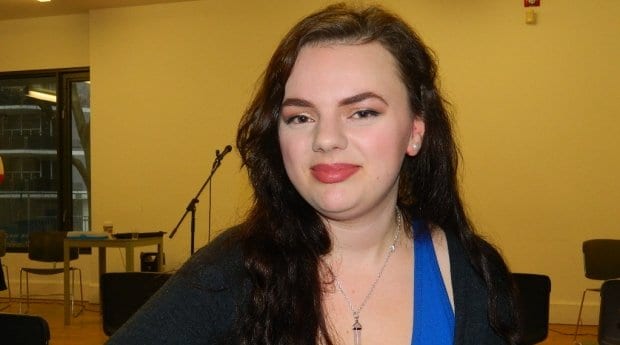Going to the doctor’s office is never a fun experience. But when patients are met with a lack of resources and assumptions about their sexuality, a checkup can turn into an unpleasant experience.
Young bisexual women face these issues with every visit, and it was addressed when researchers previewed the Young Bisexual Women’s Sexual and Reproductive Health Study at the 519 Church Street Community Centre on Jan 24.
“We know that young bisexual women experience a number of disparities in their sexual healthcare,” says Cheryl Dobinson, the project’s principal investigator and director of community programming and research at Planned Parenthood Toronto.
During four focus groups held in August, 35 bisexual women (ages 16 to 29) disclosed just what those disparities are. Doctors assuming the women are either straight or lesbian, not considering the possibility of bisexuality, knowing little about bisexuality and not providing bi-inclusive sexual-health resources were some of the common concerns the women addressed.
“Doctors need to make a lot fewer assumptions and ask a lot more questions,” says Kate Sloan, 22, who took part in the focus groups and performed at the community launch at The 519.
“I’ve had doctors assume I was straight or assume I was gay based on what I was saying,” she says, adding that she felt awkward and scared as a result.
Assumptions abound, but sexual-health resources do not. Women in the focus groups reported that resources tend to be centred on penile-vaginal intercourse and that there is little to no information on sexual health for women who have sex with women.
Another recurring concern the research uncovered was that doctors had limited understanding of bisexuality. In fact, several of these women found themselves educating their healthcare providers on their sexuality.
The group’s suggestions seem rather obvious: ask inclusive questions and don’t make assumptions; design bi-specific resources and provide bi-inclusive sexual-health supplies; and educate healthcare providers on bisexuality.
The latter suggestion will happen soon enough, as Dobinson and her team are getting ready to release a fact sheet for healthcare providers. They’ll also publish a research summary report, and there are plans to write academic papers and a proposal to develop an intervention for bisexual and queer women.
Dobinson and Planned Parenthood Toronto lead the project in partnership with Re:searching LGBTQ Health at the Centre for Addiction and Mental Health (CAMH) and the Factor-Inwentash Faculty of Social Work at the University of Toronto. Women’s Xchange (a Women’s College Hospital research program) provided the funding, which was limited to $15,000. “We’ve stretched that to make it go a long way,” Dobinson says.
The youth advisory committee they set up has been an added help. Eight young bisexual women volunteered on the committee, and they were responsible for finding focus group members, helping to analyze the raw data, contributing to the creation of the first fact sheet and organizing the event that launched it.
Eloise Adams, 26, is a member of the youth advisory committee. She has a lot of hopes for the fact sheet. “Ideally, people will recognize their experience in it and feel less isolated. I hope it will empower people to seek understanding care.”
Dobinson’s aspirations for the project largely echo those of Adams. “The hope is that through both education and awareness in our community and amongst healthcare providers, we improve conditions for young bisexual women.”
Editor’s note: A previous version of this story listed the funding amount as $1,500, not $15,000.


 Why you can trust Xtra
Why you can trust Xtra


